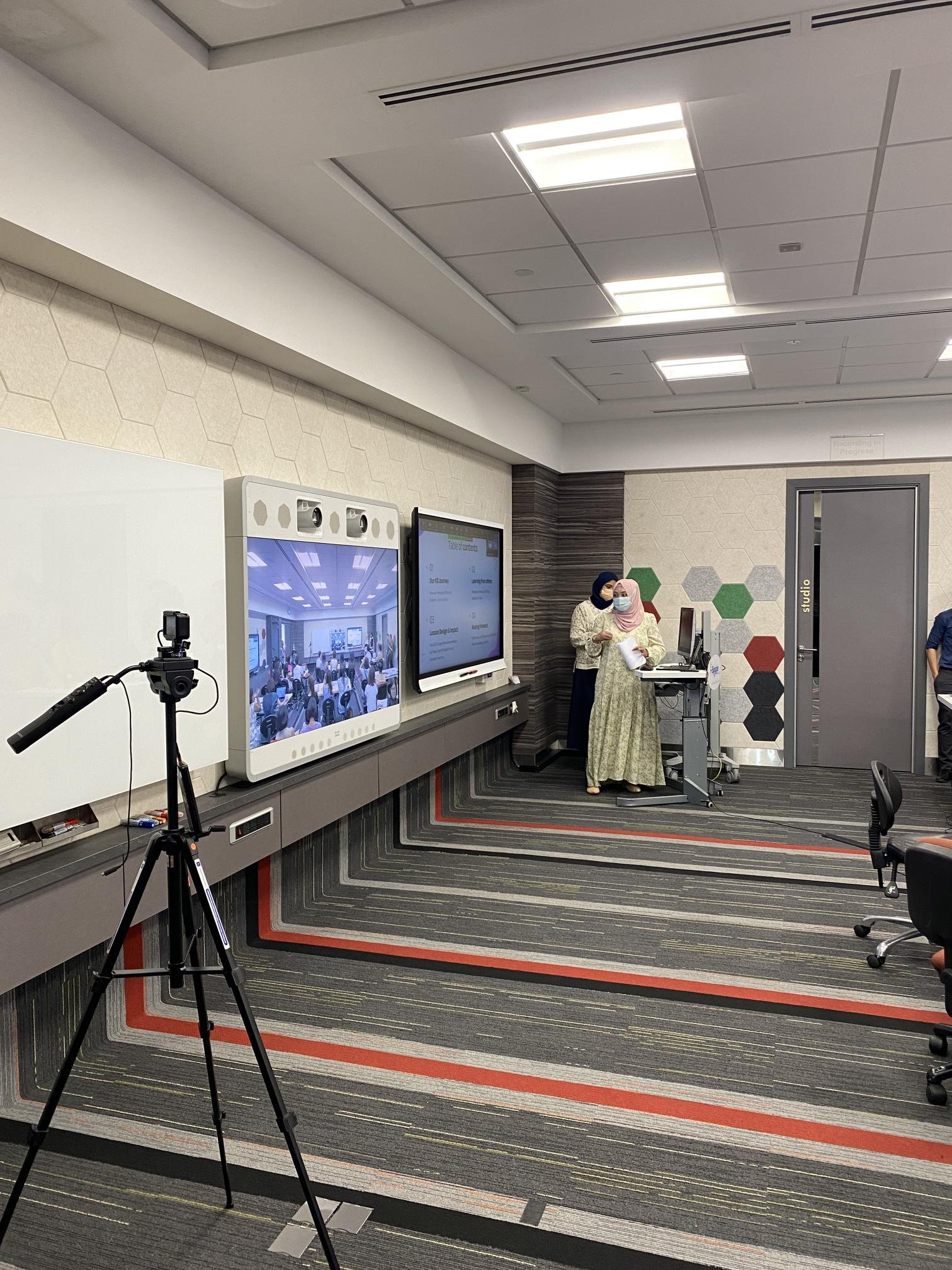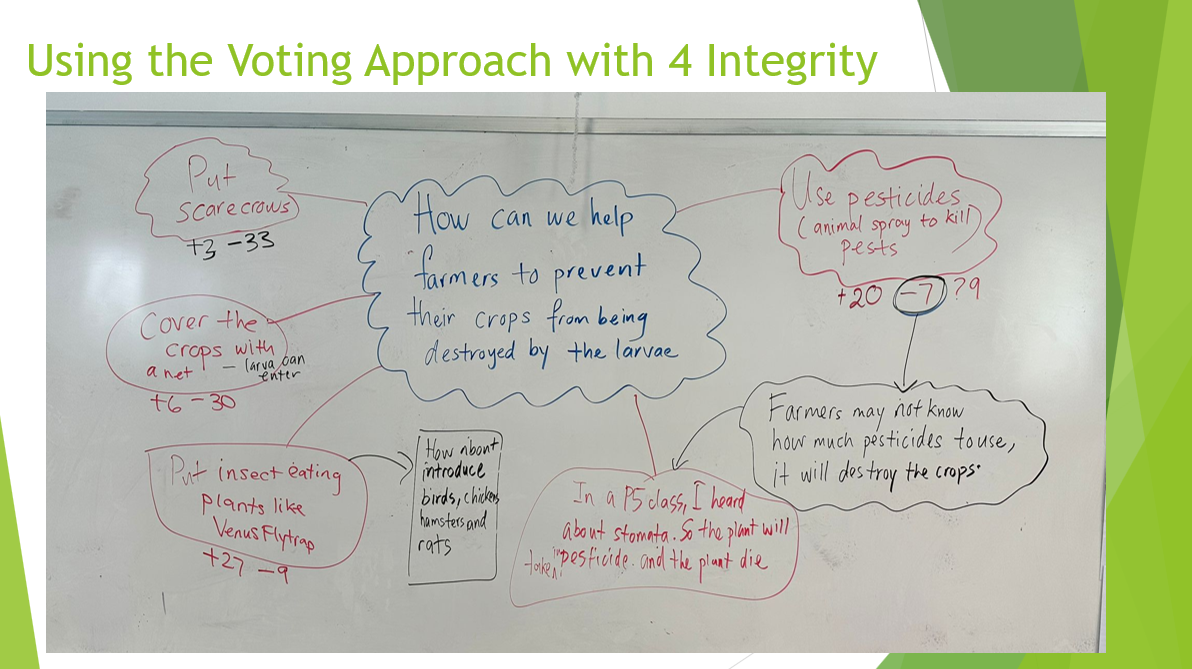KB for Everyone
“Knowledge Building for Everyone” was the theme of the Knowledge Building Community Network Learning (KBCNL) event hosted by the Centre for Research in Pedagogy and Practice (CRPP) and held on 18 March 2024. The event brought together a community of 40 educators and 15 researchers at the National Institute of Education (NIE) to advance knowledge on Knowledge Building (KB) practice and to showcase real works on how KB enhanced classroom teaching and learning. In line with the event’s theme, presenters also shared insights on how they made KB accessible to other educators and their students, at different scales and in ways that were supported by various pedagogical resources or technological tools.
Future of Learning: Introduction and Building KB Culture in Schools
The event started with an address from Dr Teo Chew Lee, who stressed the importance of working with the wider educator community to sharpen the teaching practice. According to Dr Teo, it is not enough for researchers to just look at data. Rather, “We want to be connected to you (teachers).” These opening remarks were followed by a presentation from Dr Katherine Yuan, who dove deep into strategies for building the culture of knowledge building and emphasising the value of students engaging in reflection tasks such as the Journey of Thinking, before discussing some of the habits of creative minds.
An example of a school that embodies knowledge building culture was seen in an academy headed by Prof Zhang Yibin. He presented salient examples of KB triggers in his school (such as a zoo in the school) that facilitates students to find authentic problems to build new knowledge. The school proudly displayed examples of KB throughout its hallways, allowing students to immerse themselves in KB culture. To conclude, Prof Zhang brought on one of his teachers, Ms Emily Cao, to show attendees an example of a Mathematics lesson where KB was at the forefront. The widespread implementation of KB in Prof Zhang’s school highlighted the fact that Knowledge Building pedagogy is transformative both within and out of individual classrooms. Thus, the building of a KB infrastructure on a larger scale can go a long way to establish the culture for everyone.
Dr Katherine Yuan speaking on the importance of reflection
Prof Zhang Yibin on strategies to build whole-school KB culture
Participants engaged in the discussion
Knowledge Building (KB) for Everyone: Varied Possibilities
Mr Melvin Chan shared his thoughts on building a KB-empowered environment in the context of professional learning and development. He put an emphasis on the people-oriented nature of professional development. He explained that teachers must see their peers as a community, and finished with the notable quote, “Every person is valuable! Every idea is improvable! Every inquiry is do-able!”
Mr Melvin Chan elaborating on the importance of professional development
Four teachers, Teacher Sulo Kanapathy and Teacher Thein from a kindergarten class, and Ms Linda Shah and Ms Liyana Saine from a grade four class, shared ways that they incorporated KB strategies into their teaching practice . The value of a KB Cloud approach, where students build-on to the ideas of their peers by writing with different coloured pens, was made evident. These teachers stressed the need for students to find authentic problems in the subjects they are studying, and to develop “big idea questions”. Their works showed that KB can support even very young learners too (pre-schoolers) in collective inquiry.
Learning analytics, Generative AI and KB: Technological advances to support Knowledge Building (KB)
The remaining duration of the event zeroed in on how technology can be leveraged to enhance the KB process. Mr Andy Ng used the analogy of people making their own walking path on top of grass despite having a paved road available to highlight the fact that what students want to learn and what teachers want to teach do not always align. He posed the question “What if we can get students to start walking ‘desire lines’ of inquiry first, then we pave it with them.” He showed how he used an analytical tool called a word cloud to give his students the ability to come up with the questions that they wanted to explore. He remarked, “The students could come up with questions that even I could not come up with.”
Mr Andy Ng explaining how learning analytics can be used to help identify students’ “desire lines of inquiry”
Ms Chen Siyun and Ms Tan Yee Yin concluded the event with their respective presentations on the power of generative artificial intelligence to enhance KB practice. Ms Chen shared about a GPT chatbot named Fairbot that she used in her classroom. Fairbot was used to train her students to ask better questions and to use better vocabulary through the use of prompts. As an analytical tool, it was explained that Fairbot’s interactions with students can show teachers gaps in their students’ knowledge. Importantly, Fairbot can filter out content so that it can remain age appropriate for whoever is using it . Ms Tan then introduced the Knowledge Building Learning Companion for Teachers (KB LCT), another Chat GPT-based software that can be used to deepen teachers’ understanding of KB principles. Users can ask KB LCT to do things such as explain a principle in further detail or even to propose a lesson plan that uses KB principles. KB LCT aids teachers to integrate KB principles into lesson designs and potentially build their conceptual understanding and confidence in KB practice.
Ms Chen Siyun sharing about the use of Fairbot in her school
Closing remarks
The success of the KBCNL event again demonstrates the potential of a KB community to advance knowledge and foster culture. KBCNL makes it possible for everyone to learn collectively, and develop new ideas for KB practice to cater to different contexts, schools and classrooms. Through these sharings, it is hoped that educators will bring KB to their practice and take on a mindset to value and keep student ideas alive. Stay tuned for upcoming network learning sessions and events, and do not hesitate to join us, as knowledge building is for everyone.








